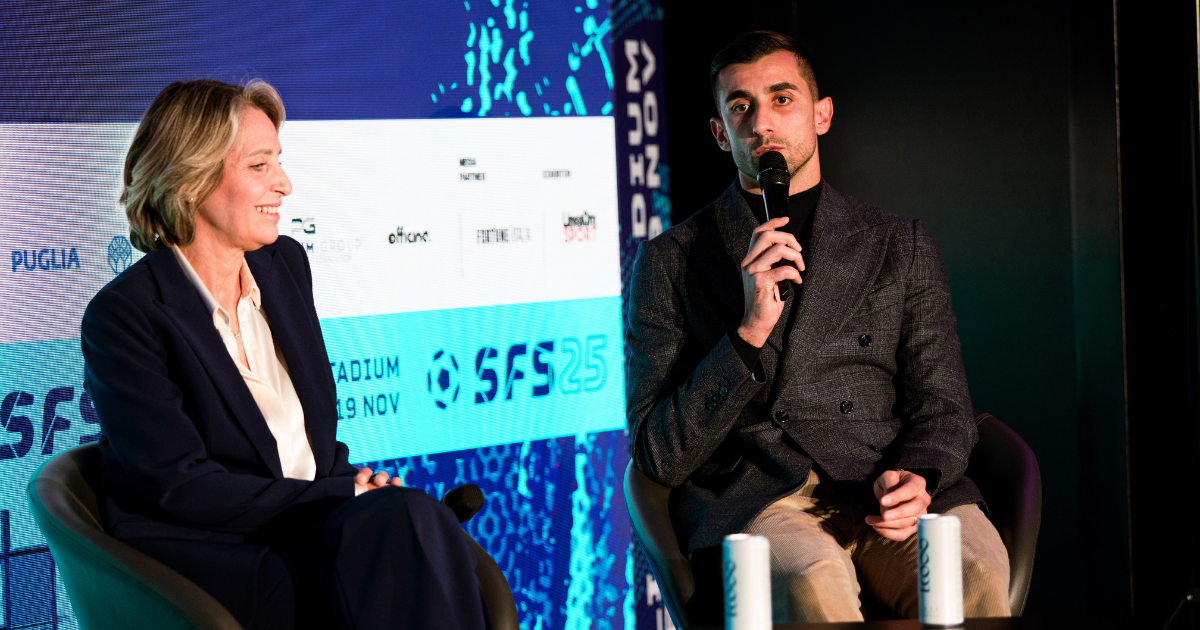
Mattia Perin’s Mental Investment Redefines Talent in Football
The panel “Is Football Really Prioritizing Players’ Mental Health?”, moderated by Riccardo Nasuti (Digital Manager SFS 25), focused on the crucial topic of athlete mental health. The conversation between Juventus goalkeeper Mattia Perin and his personal psychologist, Nicoletta Romanazzi, offered a frank perspective on the internal work required for high performance, highlighting how cultural resistance is finally beginning to fade.
The personal story and freedom from external judgments
Mattia Perin shared his experience, revealing that he had wanted to quit playing after numerous injuries, a period when he had lost his passion for the game. The turning point was “gaining a different perspective and better understanding oneself, which is fundamental and useful for rediscovering the balance that allows one to be performant in sport and in life.” All emotions, even negative ones, can make a difference, provided one is capable of accepting the mistake and finding a solution.
Romanazzi confirmed that cultural resistance is the main enemy. “There is still the old mentality, because people think that being mentally challenged means being weak. In reality, that’s a contradiction: problems must be solved by experts.”
Coaching work has no set timeline but depends on the individual and their goals. The ultimate aim is to learn to enter a state of flow or competitive trance, a level of maximum concentration which, as Marcel Jacobs’ example demonstrates, is the result of continuous work. Perin testified to his evolution: “Before, after a good match, I would post on social media, and after a bad match, I wouldn’t. Now, after coaching work, I have understood that comments no longer influence me. Today, I am free from external conditions and judgments.”
The corporate challenge and injury prevention
Today, it is easier for individual players to seek a mental coach, while there is “still a long way to go” from the clubs’ side. Romanazzi pointed out that mental coaching not only prevents problems and the injury itself (which often has a mental root) but also helps “better manage communication with oneself and with teammates.” Friction between people, arguments, and distance create social and relational discomfort.
Perin feels supported by his club: “Juventus provides Beppe Vercelli, the club psychologist, who is excellent, and psychologists also follow the youth sectors.” He stressed the importance of support in the youth ranks, where many former teammates have experienced enormous difficulties: “We are all born with talent, but character realizes it.”
Romanazzi’s final advice to young people is to learn to keep their personal power to themselves, without externalizing it. Perin concluded that the difference can be made by being hungry for knowledge, culture, curiosity, and always having a different perspective.



